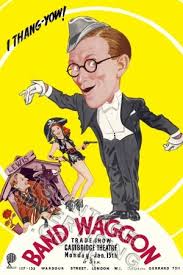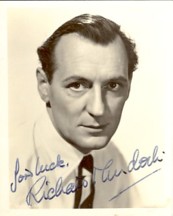
Richard Bernard Murdoch was an English actor and entertainer.
Bandwagon, band wagon, bandwaggon, band waggon, may refer to:

Ernest Wiseman,, known by his stage name Ernie Wise, was an English comedian, best known as one half of the comedy duo Morecambe and Wise, who became a national institution on British television, especially for their Christmas specials.

Jack Hylton was an English pianist, composer, band leader and impresario.

Arthur Bowden Askey, was an English comedian and actor. Askey was known for his short stature and distinctive horn-rimmed glasses, and his playful humour incorporating improvisation and catchphrases including "Hello playmates!", "I thank you" and "Before your very eyes".
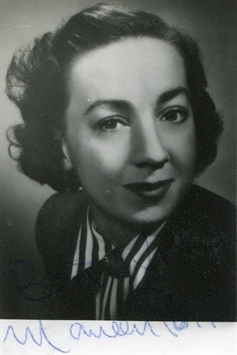
Maria Philomena Potter, known as Maureen Potter, was an Irish singer, actress, comedienne and performer.
New Faces is a British television talent show that aired in the 1970s and 1980s. It has been hosted by Leslie Crowther, Derek Hobson and Marti Caine. It was produced for the ITV network by ATV, and later by Central.

Thomas Reginald Handley was an English comedian, best known for the BBC radio programme It's That Man Again ("ITMA") which ran between 1939 and 1949.
Band Waggon was a comedy radio show broadcast by the BBC from 1938 to 1940. The first series featured Arthur Askey and Richard "Stinker" Murdoch. In the second series, Askey and Murdoch were joined by Syd Walker, and the third series added Diana Clare for two episodes. Band Waggon was co-produced by Gordon Crier and Harry S. Pepper and was the first comedy show to be designed for radio.
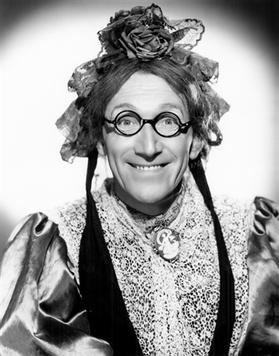
Charley's (Big-Hearted) Aunt is a 1940 British comedy film directed by Walter Forde, starring Arthur Askey and Richard Murdoch as Oxford 'scholars'.
Living It Up was a black-and-white British sitcom starring Arthur Askey and Richard Murdoch that ran for nine episodes from 1957 to 1958. It was written by Sid Colin and Talbot Rothwell. It was made for the ITV network by Associated-Rediffusion. All nine episodes survive in the archives.

Patricia Kirkwood was a British stage actress, singer and dancer who appeared in numerous performances of dramas, cabaret, revues, music hall, variety and pantomimes. She also performed on radio, television and films. In 1954, BBC Television broadcast The Pat Kirkwood Show; she was the first woman appearing on British television to have her own series.
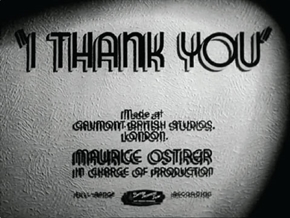
I Thank You is a 1941 black and white British comedy film directed by Marcel Varnel and starring Arthur Askey, Richard Murdoch, Graham Moffatt and Moore Marriott. It was produced by Edward Black at Gainsborough Pictures. The title of the film is the literal version of Arthur Askey's famous catch-phrase which he idiosyncratically pronounced as "Ay-thang-yaw".
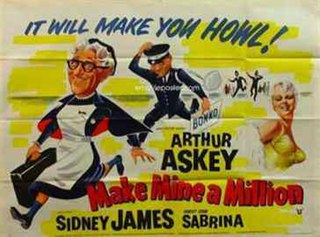
Make Mine a Million is a 1959 British comedy film directed by Lance Comfort, starring Arthur Askey, Sid James, and Bernard Cribbins. It was distributed by British Lion. The film parodies the perceived stuffiness of the 1950s BBC and the effect of television advertising in the era.
Peter Gawthorne was an Anglo-Irish actor, probably best known for his roles in the films of Will Hay and other popular British comedians of the 1930s and 1940s. Gawthorne was one of Britain's most called-upon supporting actors during this period.
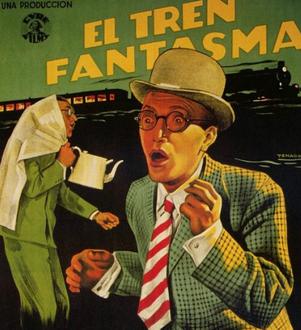
The Ghost Train is a 1941 British thriller mystery film directed by Walter Forde and starring Arthur Askey and Richard Murdoch. It is based on the 1923 play of the same name written by Arnold Ridley.
This is a summary of 1935 in music in the United Kingdom.
Gordon Crier was a Scottish radio and television producer and writer.
Leonard Lowe was an English comedian, actor, scriptwriter and musician.
Pat Marlowe was an English socialite, party hostess and actress who found minor fame in the 1950s and early 1960s. Her tragic death by suicide aged 28 in 1962, shortly after the death of Marilyn Monroe, caused reflection on the harsh reality of life for apparently glamorous young women striving for success in showbusiness.
